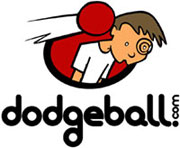For last week’s Technologizer column over at TIME.com, I took a look at Google+, the promising new “project” that consists of several loosely-knit services that add up to a plausible Facebook alternative.
At the moment, it’s a sort of Fantasyland where almost everybody is a tech geek, and nearly all the talk is about Google+. And there’s no guarantee it’s going to go anywhere once real people are allowed to flood in. But the fact that people are taking it seriously rather than squawking and mocking is a bit of a breakthrough.
After all, Google’s social networking track record to date is rife with stuff that failed to live up to its potential, caused needless angst for its users, or never quite took off at all. Consider the evidence…
 |
Orkut
 Founded: 2004, and created by Google engineer Orkut Büyükkökten, who named it after himself.
Founded: 2004, and created by Google engineer Orkut Büyükkökten, who named it after himself.
What it could have been: Facebook. Or something really similar.
Still extant? Yes. In fact, it still has something like 100 million members, although very, very few of them are in the US. It did, however, become a big hit in Brazil and India.
What went wrong? Google launched a Facebook-like social network a month before there was a Facebook, and quite a few people liked it–but the company failed to understand that the idea was incredibly powerful.
Random trivia: Orkut is still in beta.
  |
Dodgeball
 Founded: 2004 (acquired by Google in 2005)
Founded: 2004 (acquired by Google in 2005)
What it could have been: The service that put check ins on the map.
Still extant? No–Google closed it in 2009.
What went wrong? Dodgeball was a mobile service for checking into real-world locations, an idea that eventually became extremely popular. But maybe Google was just too early: In 2004, very few people were familiar with the idea of phone-based social services. (Engadget called Dodgeball “Friendster for your cellphone.”)
Random trivia: Dennis Crowley, founder of Dodgeball, went on to create FourSquare–basically the same thing with much better timing.
  |
Jaiku
 Founded: 2006 (a couple of Finns created it, then sold it to Google in 2007)
Founded: 2006 (a couple of Finns created it, then sold it to Google in 2007)
What it could have been: Twitter, at about the same time Twitter was getting going.
Still extant? Yes. Google gave up on it in 2009 at the same time it axed Dodgeball, but open-sourced it. But it’s in pretty sad, spam-infested shape.
What went wrong? You know, I’m not sure. It was one of umpteen services that Google has bought over the years and then not done much of anything with. Scary thought: If Google had acquired Twitter rather than Jaiku, it seems entirely plausible that Twitter might not exist today.
Random trivia: Like Twitter, Jaiku has a 140-character limit, originating from its beginnings as a text messaging-oriented service.
  |
Wave
What it could have been: That’s surprisingly tough to say! It combined elements of e-mail, instant messaging, photo sharing services, and groupware, without being much like anything else the world has ever seen.
Still extant? Not really. You can get into Waves you’ve created, but in August of last year–just two and a half months after Wave opened to the public–Google said it was giving up on the idea.
What went wrong? If you liked Wave, you probably feel that Google lost interest at a bizarrely early stage in its life. If you don’t like Wave, you may think that it was just way too convoluted. Or you might be like me and think both of those statements are true.
Random trivia: Google open-sourced the Wave technologies and handed them over to the Apache Foundation, which used them as the basis for Wave in a Box.
  |
Buzz
What it could have been: Twitter, only more so–in Gmail.
Still extant? Yup. In fact, it’s part of Google+. But people seem pretty oblivious to it. (Or at least I am–it’s in my Gmail, and I never bother to check it.)
Want went wrong? Buzz got off to a truly hideous start, with a privacy dust-up that eventually resulted in an FTC fine. But even if had managed to avoid controversy, I’m not sure if the world would have embraced it. It’s based on two theories that seem to be faulty: (A) it’s possible to beat Twitter by providing more features, and (B) people want to engage in social sharing with their e-mail contacts.
Random trivia: The name “Buzz” seems to be jinxed. In April of this year, Yahoo killed Yahoo Buzz, a service that had nothing in common with Google Buzz–because it was a carbon copy of Digg.
Whew. Most of the history of Google+ is yet to be written. It might never put a serious dent in Facebook. But at least the chances seem pretty high that it won’t earn a spot in this Hall of Lame.
 |




